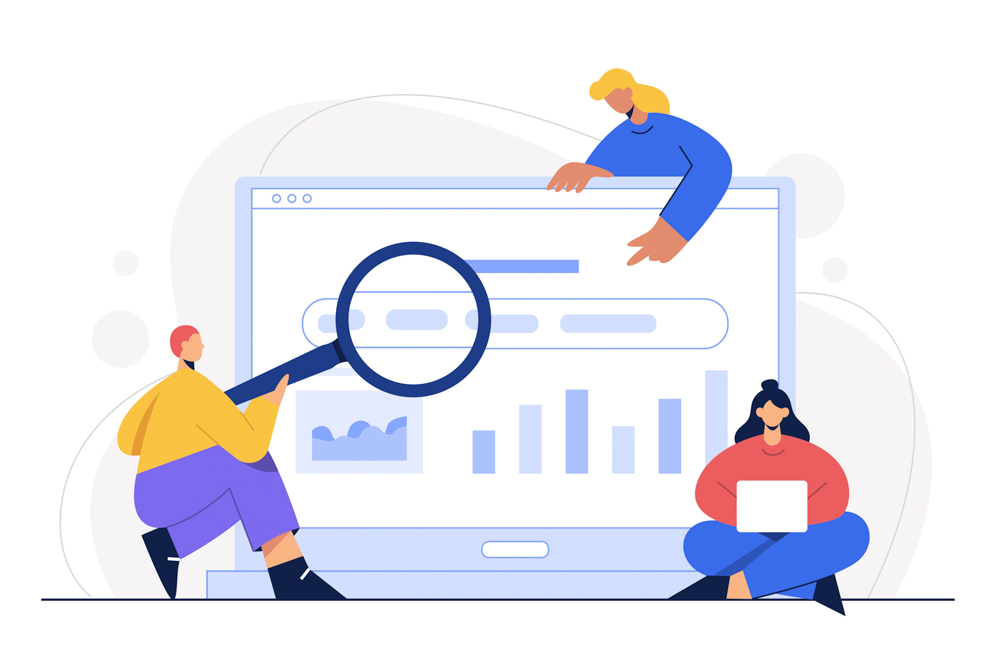Slow site speed is as bad as having no website at all. Not only site visitors are likely to leave if they stumble upon slow pages, but also search engines will rank your website in lower positions in search results.
This is why, when working on your website, it is important to make it as fast as possible, so you ensure a satisfactory user experience and prominent ranking in search results.
Keep reading, so you understand better what is site speed, why it matters, and what you can do to make your website faster and more useful.
What is Site Speed
Simply put, site speed, is the average time it takes for your web pages to load. The lower the time, the better.
Page speed, on the other hand, describes the loading time of an individual website page.
In more technicality, website speed is the time between a web browser request and the server response that results in the display of certain web content that you (the client) requested via your web browser.
If there are no technical issues on your website and the communication between a web browser and a server, such a process takes less than 3 seconds. If it takes more than 5 seconds, then you should try to optimize your website, so it performs better.
Why Site Speed Matters
In today’s world of the Internet, fast speed is paramount and people are used to acquiring information on the Web quickly and easily.
This is why, when working on your website, making it as fast as possible is very important. There are three main reasons for this:
Reason 1: People are very likely to abandon your website if it takes too long to load. Each additional second site visitor must wait for a page to load makes them irritated. If page loading time takes more than 4 seconds, site visitors are likely to leave the site and avoid it in the future. In short, slow loading speeds contribute to a bad user experience and you don’t want that.
Reason 2: Site and page speed are ranking factors. Search engines take page and site speed under consideration. Google, Bing, and others would rank your fast website on a higher position in result pages, which would enhance the chances that more people visit it.
However, the opposite is also true – if your site’s loading speed is slow, Google and Bing will rank it in lower positions, which can harm your website’s popularity and traffic.

If you are interested in the topic of SEO, then check out our article, explaining everything about search engine optimization: What is SEO and How Does It Work?
In short, both people and search engines don’t like slow websites. This means that even though your web content may be beneficial, relevant, and up-to-date, people would still avoid your website and search engines would still rank it low if it takes too much time to load.
Reason 3: Slow site and page speed lowers your chances for monetization Should you wish to monetize your website and add more streams of funds, you should know that site speed is essential when it comes to monetization, especially if you want to sell ad space on your site, conduct affiliate marketing strategies, or use it as a platform for guest posts. If you are interested in the topic of monetization, here are some great ways to do so: 9 Ways to Start Monetizing Your Website
How to Measure Site Speed
In most cases, measuring website speed is done by using various tools and techniques.
Online Website Speed Testing Tools. There are various tools you can use to measure your website speed and provide you with various details of what works for your website and what needs further improvement:
Web Browser Developer Tools. Most contemporary web browsers come with a built-in developer set of tools that allow you to measure your website speed and the performance of different site components with great precision.
Server-Side Site Speed Monitoring. If you have access to your server’s root folder and hosted data, you can monitor server response times and other server-related metrics that can grant you insight into your website’s performance rates.
Content Delivery Network (CDN) Analysis. If you are using a content delivery network, then check for any analytics tools, as such are oftentimes provided for free. Use such tools to monitor exactly how quickly web content is being delivered from a server to a user in different geographical regions.
Regardless of which method you choose, it is very important to monitor as many factors as possible when delving into optimizing your website’s speed. Some of the many factors that can impact website speed are server performance, network latency, size of media files such as images, video, and audio files, bulky code scripts, and more.
Find out more about how to optimize your website speed.
Conclusion
 Having a fast site speed is essential. Whether you work on your personal website project or manage a company website, it is very important to ensure fast loading speeds at all times, so your site visitors benefit from a rewarding browsing experience and search engines rank your site in higher positions in search results.
Having a fast site speed is essential. Whether you work on your personal website project or manage a company website, it is very important to ensure fast loading speeds at all times, so your site visitors benefit from a rewarding browsing experience and search engines rank your site in higher positions in search results.
Read also:
